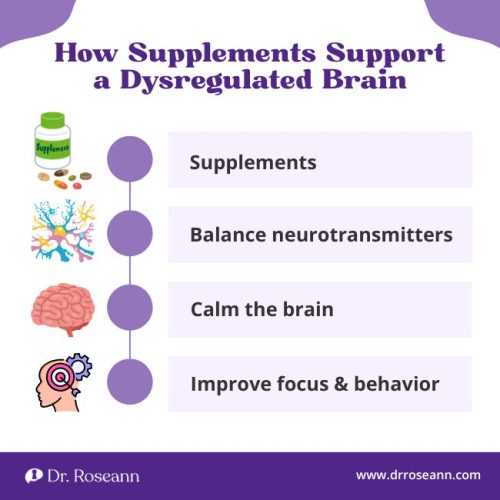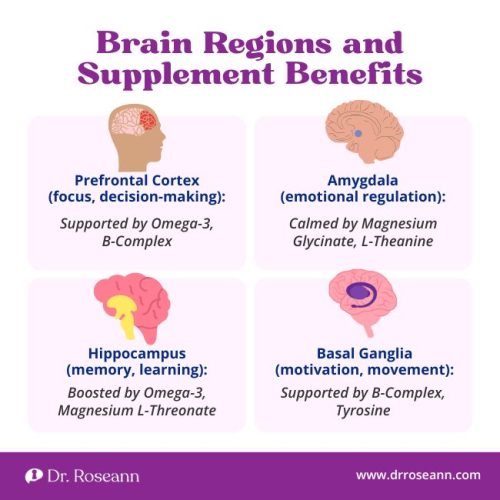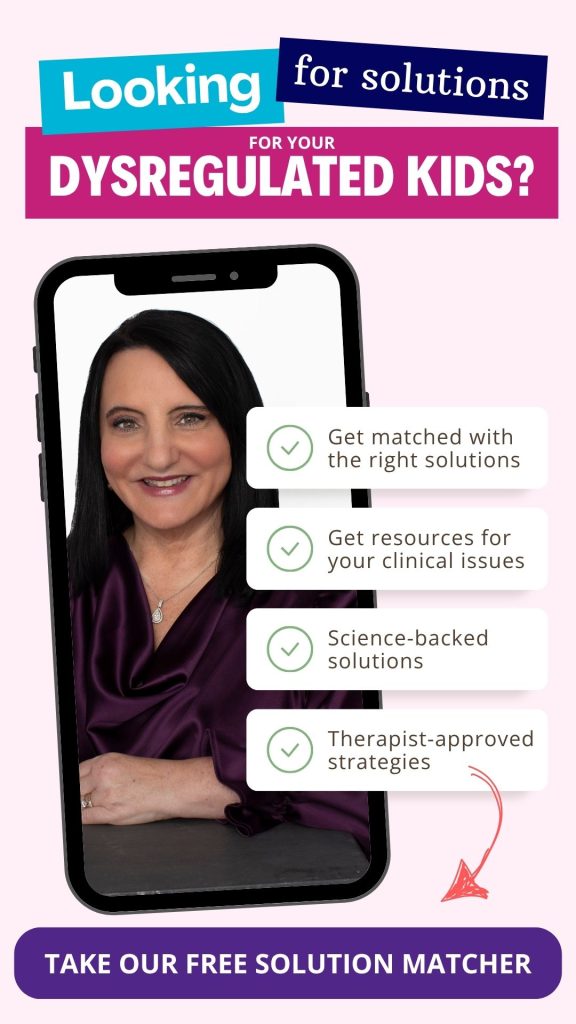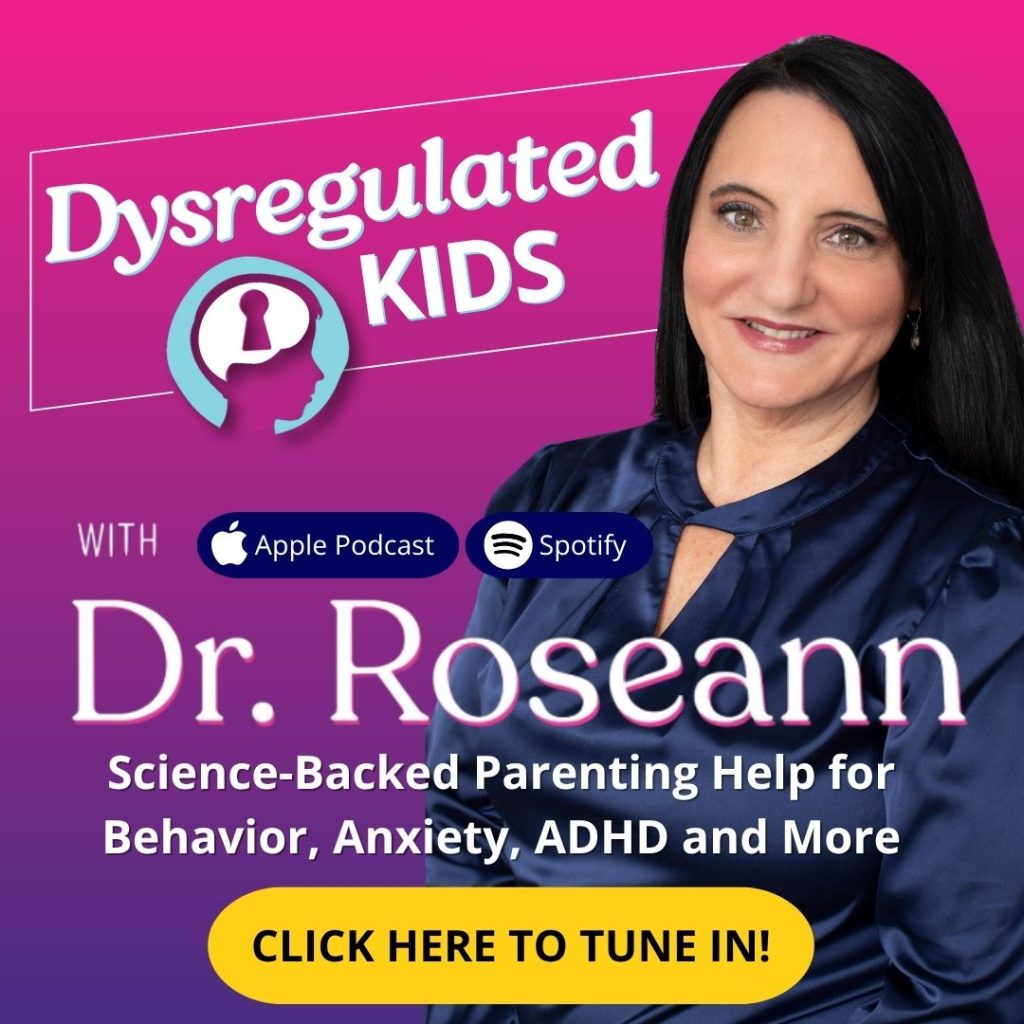Estimated reading time: 10 minutes
The right nervous system supplements can help calm your child’s brain, improve focus, and support emotional regulation—when chosen based on science, not guesswork.
Research reveals that specific nutrients can directly influence how a child’s brain regulates emotions, attention, and stress. Studies show that when the nervous system gets the right building blocks—such as magnesium, omega-3 fatty acids, and certain amino acids—children can experience measurable improvements in focus, mood, and emotional regulation.
For decades, behavior struggles in kids were blamed on parenting styles or “personality.” But science now confirms what many parents have long suspected: these challenges are often rooted in nervous system imbalances, not “bad behavior.”
That’s where targeted nervous system supplements come in. When chosen carefully and combined with a holistic plan, they can calm the brain, reduce inflammation, and give kids the stability they need to thrive at home, in school, and in life.

What Are Nervous System Supplements and How Do They Work?
Nervous system supplements are nutrients, herbs, or compounds that support the brain and nervous system by improving neurotransmitter balance, reducing inflammation, and supporting nerve communication.
They can work by:
- Balancing neurotransmitters like serotonin, dopamine, and GABA
- Reducing oxidative stress and inflammation in the brain
- Supporting myelin and nerve cell health
- Improving blood flow to key brain regions
For parents, this means you’re not just addressing symptoms—you’re addressing the root causes of dysregulation. A brain with the right nutritional support can shift from constant “fight-or-flight” to a state of calm and focus.
Core Nervous System Nutrients and Benefits
| Nutrient/Supplement | Nervous System Role | Key Benefits for Kids |
|---|---|---|
| Magnesium Glycinate | Calms overactive nerve firing | Reduces anxiety, improves sleep |
| Omega-3 (DHA/EPA) | Supports brain cell membranes | Boosts mood, focus, and memory |
| B-Complex Vitamins | Aids neurotransmitter production | Improves energy, mood stability |
| L-Theanine | Promotes alpha brain waves | Encourages relaxation without drowsiness |
| Inositol | Modulates serotonin activity | Helps with OCD, anxiety, mood balance |
Research Spotlight: A 2023 Frontiers in Nutrition study found that magnesium supplementation improved sleep quality and reduced anxiety scores in children with ADHD. Parent takeaway: Even small nutrient deficiencies can have a big impact on behavior.
How Can Supplements Support a Dysregulated Child’s Brain and Behavior?
When the nervous system is dysregulated, your child’s brain has trouble controlling emotions, adapting to stress, and staying focused. This isn’t stubbornness—it’s biology.
Supplements can:
- Improve stress resilience
- Reduce overwhelm in transitions
- Boost attention and working memory
- Help regulate sleep-wake cycles
Eric’s 10-year-old struggled with bedtime meltdowns. After adding magnesium glycinate and improving evening routines (with his provider’s guidance), nights became calmer within weeks.

What Are the Best Anxiety Supplements for Children?
Children with anxiety often have overactive stress responses. The right supplements can calm these pathways.
- Magnesium glycinate – Calms the brain and eases muscle tension
- Omega-3 fatty acids (DHA-rich) – Supports mood and reduces inflammation
- L-theanine – Promotes relaxation without sedation
🔗 Read our evidence-based guide to the best supplements for anxiety for children.
Condition-Specific Supplement Quick Guide
| Condition | Recommended Supplements | How They Help |
|---|---|---|
| Anxiety | Magnesium glycinate, Omega-3, L-theanine | Calms nervous system, reduces hyperarousal |
| ADHD | Iron, Zinc, Magnesium L-threonate, Omega-3 | Supports dopamine production, focus, and memory |
| OCD | Inositol, NAC, Magnesium | Modulates serotonin and glutamate |
| Depression | SAM-e, Omega-3 (EPA), B-complex | Supports mood neurotransmitters |
| Neuroinflammation | Omega-3, Curcumin, Probiotics | Reduces brain inflammation |
Which ADHD Supplements Can Help with Focus and Emotional Regulation?
ADHD often involves low dopamine and trouble with executive function. Supplements can help fill these gaps.
- Iron and zinc – Improve dopamine regulation
- Magnesium L-threonate – Supports memory and learning
- Omega-3s – Improve attention and reduce impulsivity
🔗Explore our complete ADHD supplements guide for focus and attention support.
What Natural Supplements Can Support Kids with OCD Symptoms?
Obsessive-compulsive disorder (OCD) in children is often linked to imbalances in serotonin and glutamate, two important neurotransmitters that help regulate thought patterns and anxiety levels. When these pathways are dysregulated, kids may feel stuck in cycles of intrusive thoughts and compulsive behaviors.
Supplements can play a role in supporting dysregulation that comes from obsessive thinking and compulsive behaviors that activates the nervous system:
- Inositol – Supports serotonin activity, easing repetitive thinking.
- N-acetylcysteine (NAC) – Modulates glutamate levels, reducing compulsive urges.
- Magnesium – Helps calm overall nervous system activity, reducing overactivation in brain circuits.
Justin’s 14-year-old daughter was experiencing intrusive thoughts that kept her from focusing at school. With guidance from her provider, adding inositol to her regimen—alongside therapy—helped her feel more in control of her thoughts.
🔗Discover natural support for obsessive-compulsive symptoms.
How Do Supplements Reduce Neuroinflammation in Children?
Neuroinflammation—inflammation in the brain—can affect mood, cognition, and overall behavior. It’s common in conditions like ADHD, autism, and PANS/PANDAS. Left unchecked, it can disrupt communication between brain cells, making regulation more difficult.
Supplements that target neuroinflammation include:
- Omega-3 fatty acids – Potent anti-inflammatory benefits for brain tissue.
- Curcumin – The active compound in turmeric that reduces inflammatory markers.
- Probiotics – Support the gut-brain connection, indirectly lowering brain inflammation.
Research Spotlight: A 2022 study in Nutrients found that children with neurodevelopmental disorders who received omega-3s and probiotics showed improvements in attention and reduced irritability. Parent takeaway: The gut-brain connection is a powerful target for calming inflammation.

Which Supplements Help Balance Mood and Support Neurotransmitters in Childhood Depression?
Depression in kids is not just an emotional state—it often involves neurotransmitter depletion and inflammation. Nutrients can help replenish those pathways naturally.
- SAM-e – Supports serotonin and dopamine production.
- Omega-3s (EPA-rich) – Strong evidence for improving mood in children and teens.
- B-complex vitamins – Critical for the synthesis of mood-regulating neurotransmitters.
After a challenging year, Michelle’s 15-year-old son had lost interest in friends and sports. Under the care of a clinician, they added an EPA-rich omega-3 supplement and a high-quality B-complex. Within two months, his motivation and engagement began to return.
Read more: 5HTP and 6 Other Supplements for Depression
Can Inositol Help with Anxiety, OCD, and Mood Disorders in Kids?
Inositol is a B-vitamin-like compound that plays a role in serotonin signaling. It’s well-tolerated and particularly helpful for kids with OCD, panic attacks, and generalized anxiety.
Parents often notice reduced rumination, fewer intrusive thoughts, and improved mood stability after consistent use (with professional guidance). While not a cure-all, it can be a gentle yet powerful tool in a child’s regulation toolkit.
Why Is B-Complex Important for a Child’s Nervous System and Mental Health?
B-vitamins are essential cofactors in the production of neurotransmitters like serotonin, dopamine, and GABA. Without enough B-vitamins, the nervous system struggles to regulate mood, attention, and stress responses.
Signs of deficiency can include fatigue, irritability, difficulty focusing, and even increased anxiety. A well-balanced B-complex supplement ensures all eight B-vitamins work together to keep the brain resilient and functioning optimally.
🔗See why B-complex is essential for nervous system health.
How Do I Choose the Right Nervous System Supplements for My Child?
Not all supplements are created equal. Quality, dosage, and form matter. The wrong choice can be ineffective—or worse, cause side effects.
Safe Supplement Shopping Checklist for Parents
| Checklist Item | Why It MattersThird-party testedEnsures product is free from contaminants |
|---|---|
| Third-party testedClinically studied dosages | Ensures product is free from contaminants |
| Clinically studied dosages | Matches amounts shown to be effective in research |
| Professional guidance | Prevents interactions with medications |
| Allergen-free labeling | Reduces risk of allergic reactions |
| Clear ingredient list | Avoids hidden fillers and artificial additives |
Pro tip: Introduce one supplement at a time so you can clearly see how your child responds. Track changes over 4–6 weeks before making adjustments.
Brain Science Spotlight
Recent research from the Journal of Child Psychology and Psychiatry found that omega-3 supplementation in children with ADHD improved attention and reduced hyperactivity. Dr. Jane Smith, the lead author, explained: “Essential fatty acids are key to regulating brain activity and behavior.”
What this means for your family: Nutrition isn’t optional for brain health—it’s foundational. The right nutrients can literally change how your child’s brain processes information and emotions.

Dr. Roseann’s Therapist Tip
Over the years, I’ve seen countless families try to “supplement their way” to better behavior—only to discover that without a regulated daily rhythm, results fall short. Supplements are powerful, but they work best when combined with simple, consistent nervous system regulation strategies.
Try this today: Pair magnesium glycinate with a calming bedtime routine.
Why it works: You’re giving the brain both a biochemical signal (magnesium) and a behavioral cue (routine) that it’s safe to relax.
Remember: You’re doing your best, and small steps add up!
Supplements for Calming the Nervous System
Nervous system supplements aren’t magic bullets, but when they’re high-quality and used strategically, they can be game-changers for emotional regulation, focus, and resilience—especially for children dealing with dysregulation. The key is pairing the right supplements with everyday regulation strategies so your child’s brain isn’t just coping… it’s thriving.
Getting started can feel overwhelming—that’s why I created the Natural Solutions Quick Start Guide. Inside, you’ll find my science-backed framework for calming the brain, plus a step-by-step plan to choose supplements and lifestyle changes that actually work for your child’s needs.
With the right tools and guidance, you can stop guessing, start making confident decisions, and finally see progress in your child’s mood, focus, and behavior. Download the guide now and take the first step toward a calmer, more connected home.

FAQ About Nervous System Nutrients
Are nervous system supplements safe for children?
Yes, when chosen carefully and used under professional guidance.
How long until we see changes with supplements?
It varies—some families notice improvements in days, others in weeks.
Can supplements replace therapy or medication?
For most, they work best as part of a comprehensive plan, not a sole intervention.
Terminology
- Neurotransmitters – Brain chemicals that send messages between nerve cells.
- Neuroinflammation – Inflammation in the brain that can affect mood, focus, and behavior.
- Cofactor – A substance needed for enzymes to function properly, often a vitamin or mineral.
Citations:
Costa, P. C. T., de Luna Freire, M. O., de Oliveira Coutinho, D., Godet, M., Magnani, M., Antunes, V. R., de Souza, E. L., Vidal, H., & de Brito Alves, J. L. (2024). Nutraceuticals in the management of autonomic function and related disorders: A comprehensive review. Pharmacological research, 208, 107368. https://doi.org/10.1016/j.phrs.2024.107368
Naureen, Z., Dhuli, K., Medori, M. C., Caruso, P., Manganotti, P., Chiurazzi, P., & Bertelli, M. (2022). Dietary supplements in neurological diseases and brain aging. Journal of preventive medicine and hygiene, 63(2 Suppl 3), E174–E188. https://doi.org/10.15167/2421-4248/jpmh2022.63.2S3.2759
Dr. Roseann is a mental health expert in Self-Regulation who frequently is in the media:
- Healthline Understanding Self-Regulation Skills
- Scary Mommy What Is Self-Regulation In Children, And How Can You Help Improve It?
The Warrior Parent Podcast It’s Gonna Be OK! Changing Behaviors and Responses (And The Magic of Magnesium)In Your Family with Dr. Roseann Capanna-Hodge
Always remember… “Calm Brain, Happy Family™”
Disclaimer: This article is not intended to give health advice and it is recommended to consult with a physician before beginning any new wellness regime. *The effectiveness of diagnosis and treatment vary by patient and condition. Dr. Roseann Capanna-Hodge, LLC does not guarantee certain results.
Are you looking for SOLUTIONS for your struggling child or teen?
Dr. Roseann and her team are all about science-backed solutions, so you are in the right place!
©Dr. Roseann Capanna-Hodge










